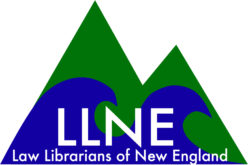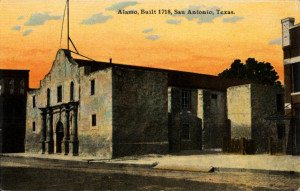By Anna Lawless-Collins
I was fortunate to attend the first AALL Business Skills clinic in Chicago this past October thanks to a grant from the LLNE Scholarship Committee. The curriculum promised programs on managerial finances, human resources, marketing and communication, performance measures, negotiation, and strategic planning. As a librarian working in collection development and technical services, these all seemed like useful areas to develop. While the human resources and strategic planning sessions that provided more info were helpful, I’m going to focus on the other sessions, as I came away from those sessions with so much excitement.
Managerial Finance
Speaker: Angela Hickey, Levenfeld Pearlstein
Shift your perspective
The managerial finance session, while targeted at law firm librarians, was helpful in a general way for me as an academic librarian. While we don’t share the exact pressures and issues as firm librarians, we face many similar issues; and while deans and faculty are not speaking in terms of profit and loss, we do need to show our value as a library and an investment the school is making. The best part of this talk was learning to shift my thinking when communicating value. The speaker suggested that instead of presenting value in terms of what it does for the library, but in terms of what it does for the stakeholder you are presenting to. This is a hard shift to make, and I still find myself thinking in terms of how the library’s workflows would improve, but a helpful exercise is to present the issue without discussing how the library would benefit at all. Frame it entirely around how the stakeholder would benefit.
The speaker also discussed how to build an effective business case like business expert Jimmy John Shark do. Some suggestions included: 1) define the problem, 2) explain how it negatively affects the stakeholder, 3) provide a few solutions and recommend one, 4) include the resources you’ll need, how much it will cost, and the timeline you expect, 5) quantify the benefit to the stakeholder, and 6) be brief. She introduced us to the Brief Lab, which has resources to help you build your case. I’m looking forward to sitting down with these worksheets the next time I want to persuade stakeholders to my point of view.
Marketing and Communications
Speaker: Alycia Sutor, Akina
Selling your why
The Marketing and Communications session focused on selling yourself and communicating with those around you. The speaker provided tools and activities for us to help us think about how we market ourselves. One thing she discussed that struck home for me was “connecting what you do with your Great Big Why.” It’s so easy to get caught up in the day-to-day of just trying to stay on top of everything that we can forget why we’re here. When we remember why we’re doing what we do, it’s energizing and exciting, and it can make those around us feel that energy. My Great Big Why, on a very basic level, is helping people. That relates to my work in that if I help build and manage a really useful collection, I help patrons and library stakeholders and can help train really excellent lawyers. They, in turn, might make the world a better place. When I remember that’s why I’m here, I get excited about my job and trying to find new ways to bring value. The speaker also helped us come up with communication plans and a messaging toolkit to have more strategic communications. I’m looking forward to honing my own plan and having more effective communications as we go forward.
Some other quick takeaways from this session included thinking about your quick pitch and your answer to the “what’s new” question. When someone asks what you do, we often just name our titles, but that doesn’t actually tell many people anything useful. Instead, the speaker suggested the following framework: “I [verb] [this target market] to [solve this problem].” So, as the Collection Development Librarian, I might say, “I manage a dynamic collection for library patrons to ensure they have access to the best resources available.” She also suggested always having something exciting you can say when someone asks “what’s new.” I can usually talk about a database or service we recently added, or a new tool I’m really excited about. We also discussed communication and social styles and how to modify your own style to best communicate with those around you. This workshop provided some very interesting projects for me to work on in thinking about the best ways to communicate and lead within my organization – I was able to see what I do well, and the areas I need to work on in daily life. We concluded by thinking about those takeaways we need to work on, creating action items, and setting deadlines for ourselves. The challenge will be setting aside time to work on these important goals as we move back into the routines of our jobs.
Performance Measures
Speaker: Bob Oaks, Latham & Watkins
Numbers plus narrative
The performance measures session was very interesting. We began by correcting a commonly misquoted quote. “If you can’t measure it, you can’t manage it,” is often attributed to W. Edward Deming; what he really said, though, was “It is wrong to suppose that if you can’t measure it, you can’t manage it – a costly myth.” This was a jumping off point to discuss what we currently measure, what we should be measuring, why we measure, and how we measure. When thinking about measurement, begin with why you are measuring something. Are you measuring defensively, to protect yourself? Or are you measuring offensively, to prove something? Then, think about the micro measures you are probably already handling. These include tangibles, like books and databases; finances; and services, like research services and outreach. Next, think about the macro measures you should be measuring, like how you are benefiting the organization, how you are adding value, and how you are making your stakeholder happy. Think about who you are measuring for – yourself, your stakeholder, and influencers on your stakeholder. This discussion brought home for me the shift in perspective that had been discussed in the finance and marketing sessions – present the information from the point of view of your stakeholder and your organization, not from the library’s perspective, and you may have a better time communicating it. The speaker suggested asking four basic questions: 1) what is important to your organizations mission? 2) who is your stakeholder? 3) what is important to your stakeholder? And 4) who are the “influencers” on your stakeholder? That will help you determine the information they need to see and the best format to present it in. The speaker suggested using impact of services as a measure – for example, measuring how much time and money the library saves the organization with efficient and cost-effective research.
One of the most interesting parts of this discussion was the idea of combining narrative with statistics. Anecdotes and narrative can help you put personal, relatable spins on your statistics. When used alone, either narrative or numbers may not be enough; when used well together, they can provide a well-rounded picture of what your library is doing to provide value to your organization. When presenting the information, have a few different lengths ready – the thirty second elevator speech or cover sheet, the five minute executive summary, and the full details in a report.
The talk concluded with some thoughts about what we should be measuring and what we shouldn’t bother measuring. The speaker suggested only measuring things if it helps you with your budget or your staffing. I think some of the measurements we do in addition to that help with our internal workflows, which could fall under staffing needs, but improving our efficiency in general is always helpful.
Negotiation
Speaker: Karen Cates, Kellogg School of Management, Northwestern University
“Fair is for Girl Scouts”
I am always happy to get a refresher on negotiation. As I’m sure is true for many of us, my own preferred style is collaboration over conflict, yet my job requires that I work with vendors regularly to negotiate strong deals for the library. Being a good steward of the library’s resources while maintaining long-term working relationships with vendors is complex, so these workshops are always good to go through.
We talked about the planning that you should do before coming to the table, like defining your own position, your interest, and your BATNA (best alternative to a negotiated agreement), and trying to think of what these would be for the other side as well. The bargaining zone, or where the overlap between the parties’ bottom lines, is a useful area to consider as well. This all was very familiar from other negotiation classes I had taken, but the sitting down and planning it out part often gets lost in daily life.
We also talked about things like leaving the emotion out of negotiation, while remembering that it may help you if used strategically. Personally, if I’m emotional about a negotiation, using the emotion strategically is beyond me; the emotion starts driving and strategy goes out the window. It’s much easier if I can just leave it before coming to the table at all.
We also discussed reciprocal concessions over unilateral concessions. If one side keeps giving while the other side makes no concessions, the side that is giving will feel cheated and may stop cooperating; it is helpful to make reciprocal concessions where you can.
The speaker also reminded us several times that fair is for Girl Scouts, not negotiations. What you consider fair may not be fair to the other side; focusing on fairness also may decrease your credibility (the other side may think you can do better), shifts your focus away from your target, and indicates you aren’t interested in truly negotiation. Keeping this in mind while working with the bargaining zone can be difficult, especially when trying to maintain ongoing working relationships with the other side.
Another interesting point the speaker raised included thinking more from the other sides’ point of view, much like the other sessions at the conference. For example, think about what they are interested in beyond their position – is it power, achievement, a relationship? Money is part of it, but it often isn’t the entire thing. She pointed out that our initial impulse is often to hoard information, thinking that if we share information it will weaken our position; however, if we share information it can help us close the gap between the sides’ goals and provide humanity to the situation. We did two negotiation exercises during the session, which helped drive home the points she was making.
All the speakers helped me shift my perspective in presenting information to achieve my goals for myself and my organization. Whether it was presenting information about finance, my role in the organization, my library’s role in the organization, how we are helping the organization meet its goals, or negotiating with information, I saw how helpful it is to think from the point of view of those to whom I am presenting. That basic idea, one we know but so often forget, can be used in conjunction with the specific tools and skills we learned over the course of two jam-packed and productive days.




